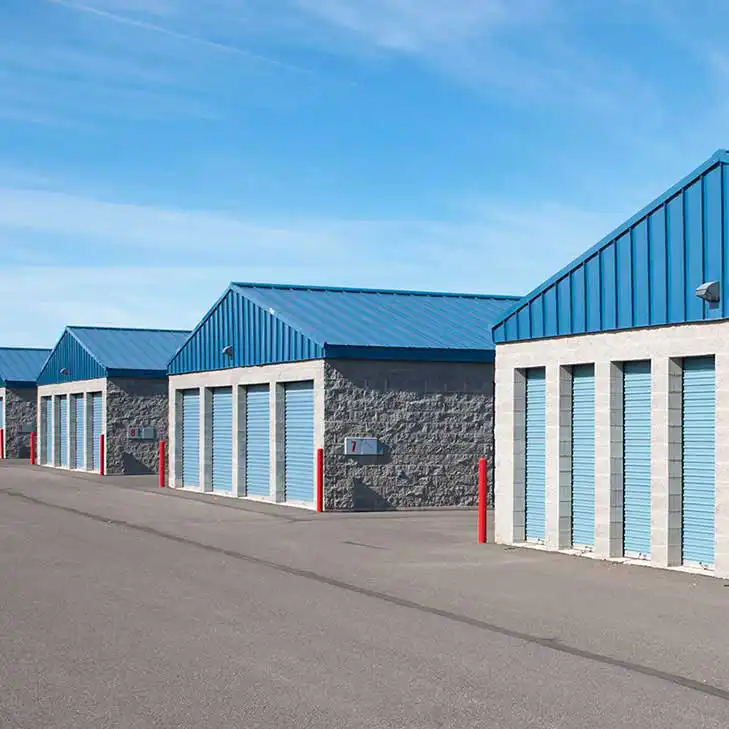Simple. Fast. Affordable.
Whether you're upsizing, downsizing or looking into a mortgage refinance, our expert Home Loan Guides can’t wait to partner with you on this big milestone.1
We make the residential mortgage process fast, easy and straightforward so you can focus on creating memories, not paperwork.
Limited-time offer: $500 closing cost credit when you finance with Solarity!2
Or call for today's rates: 888.626.1799
Loan options for all stages of home ownership

Home loans with a boost
Introducing Solarity Credit Union and the best mortgage experience you’ll ever have. We make the home loan process fast and easy. You can apply online in just a few minutes.
Our online mortgage process saves you time so you can focus on the things that really matter, and our expert Home Loan Guides are here to help every step of the way.
Home loan options include:
- Flexible loan terms to fit your budget and lifestyle
- Competitive rates and affordable payment options
- Flat origination fee, saving you thousands on closing costs
Connect with a Home Loan Guide
Whether you're buying your first home, upsizing to accommodate a growing family or refinancing to save money, our Home Loan Guides are here to make the entire process fast, easy and affordable. Fill out our contact form by providing just a few details about what you're looking for, and we'll get in touch with you right away to discuss your options. There's absolutely no obligation—just friendly, expert advice.
Prefer to talk with someone right now? Give us a call at 1.888.626.1799 and jumpstart your journey to homeownership.

Our members say it best:

Pre-approval: what you need to know
Pre-approval is an important first step in applying for a home loan. It gives you an idea of what you're likely to qualify for. It helps you figure out how much home you can afford and how much you'll be able to borrow.
Here's what you'll need to start the pre-approval process (full PDF checklist):
- Current address
- Driver's license and Social Security number
- Two months of bank statements
- Employment history for the past two years
- 30 days of pay stubs and the last two years' tax returns
- List of current debts

Let's talk about your ideal home loan
Applying for a mortgage shouldn't be difficult. We make is FAST and EASY with 3 simple ways to get started:
Online
It takes less than 10 minutes to apply online. Submit your application and we'll follow up with you to discuss your situation.
Get startedCall
Ready to talk to someone right now? Our Home Loan Guides are ready to talk to you, too! Call 1.888.626.1799.
Dial for meCommon questions about home loans
Fixed-rate and adjustable-rate home loans differ in how the interest rate is structured over time.
A fixed-rate loan has an interest rate that does not change throughout the life of the loan. Your monthly principal and interest payments remain consistent, which can make it easier to budget over the long term. This type of loan is a popular choice for those who plan to stay in their home for many years or prefer long-term payment stability.
An adjustable-rate mortgage (ARM), on the other hand, typically starts with a rate that remains the same for an initial period. After that, the rate may adjust periodically based on market conditions. For example, a "5/1 ARM" usually has a fixed rate for the first five years, followed by yearly adjustments. This type of loan may be suitable for buyers who expect to move or refinance before the adjustment period begins.
At Solarity, we offer a variety of fixed- and adjustable-rate loan options. Our Home Loan Guides are here to help you explore your choices and find a solution that fits your needs.
A pre-approval letter is a document that states the dollar amount a lender is willing to lend toward a home purchase. It is important to have it when you start house hunting because it will show both your real estate agent and the sellers' agent that you’re a serious and qualified buyer.
Closing costs are the fees and expenses you pay for a home loan and are typically between 2% and 6% of the loan amount. Closing costs consist of lender fees—such as the loan origination fee and discount points—as well as third-party fees, escrow account funds and prepaids like taxes and insurance.
At Solarity, we offer transparent loan pricing: our loan origination is a low, flat fee instead of the more common 1% of loan amount. The advantage of a flat fee is that no matter how large your loan is, your loan origination fee remains the same, which can save you money at closing.
Lenders are required by law to clearly disclose closing costs at the bottom of Page 1 of the standardized Loan Estimate form, which you can explore here. Lenders must deliver this form within three days of receiving your application. Whether you’re buying or refinancing, it doesn’t cost anything to apply for a home loan at Solarity, and you can apply online in just a few minutes. Once we receive your application, we can estimate how much you’ll need to bring to closing.
Still have questions about closing costs? Connect with our expert Home Loan Guides who can clarify any further questions you may have.
Solarity has a number of no down payment and low down payment options. For many loans, Private Mortgage Insurance or PMI may be required if you put less than 20% down. Read more about down payment requirements and saving for a down payment.
We can typically turn around a pre-approval letter very quickly - within 48 hours and a pre-qualification letter the same day. Supplying as much financial information as possible to our expert Home Loan Guides will move the process along quicker.
Want to learn more about what a pre-approval is and how it works? Watch our video.
Definitely not (unless you want to)! You can do the ENTIRE process online, applying for a Solarity home loan from your home computer or mobile device. In addition, you can call our expert Home Loan Guides. If you walk into a branch, we can connect you with our Home Loan Guides that way, too!
We will work around your schedule and will communicate with you in the manner that's most convenient for you. We go to great lengths to make the entire process for you as easy as we can. You can even close the loan from your mobile phone (message and data rates may apply). We can't wait to help you get started!
You might also like:

Auto, RV and Motor Sport Loans
Work hard, play hard! When adventure calls, we'll help finance the fun with loans for your auto and recreational needs.
Drive me there
Credit Cards
Whether you have a long credit history or are looking for a fresh start, we have a card perfect for you.
Spend with ease
Commercial Real Estate Loans
We take the time to build a true financial partnership that propels your real estate business.
See the Solarity difference
Helpful articles and information

Simple ways to build your savings with less stress
Turn everyday habits into real savings. With simple steps, smart tools and accounts that work for you, Solarity makes it easier to build momentum and grow your balance, w...

5 reasons to pay off your credit card early
Paying your credit card bill early is a simple habit that can save you money, protect your credit score and lower stress. Learn five smart reasons to give yourself a head...

Thank you for making the season brighter in our 2025 Holiday Gift Drive
Thank you for supporting Solarity’s Holiday Gift Drive. Together, our staff and members helped provide most needed items for local families and supported community organi...
How to get a mortgage
Don't let the idea of getting a mortgage stress you out. With a little preparation, you can easily navigate the process and find a great home loan that works for you. Here are some steps on how to get a mortgage:
Check your credit score: Mortgage lenders use credit scores to determine the risk of lending money. The higher your score, the better, and a higher credit score can mean a lower interest rate on your mortgage. It's a good idea to check your credit score and address any errors or issues before applying for a mortgage.
Start saving for a down payment: A down payment is a percentage of the home’s purchase price that the borrower pays upfront. The more you can put down, the less you need to borrow and the lower your monthly payments will be. In the past, 20% was a common down payment amount. Today you can buy a home with as little as 3% down or even $0 down.
Shop around for a mortgage: Compare rates and terms from multiple mortgage lenders, including credit unions. You can apply with different lenders, and each is required to provide you with a loan estimate within three days after you apply. Since all lenders use the same format, the loan estimate is a great way to compare your mortgage options.
Get pre-approved for a mortgage. When shopping for a home, it’s important to know how much you can borrow. One of the best ways to do this is through the mortgage pre-approval process. Getting pre-approved for a mortgage can also make you a more competitive buyer in a crowded market.
Gather necessary documents: Before you apply for a mortgage or pre-approval, you will need to provide proof of income, assets and employment history.
Go through the closing process: Once you've found a home and have been approved for a mortgage, you'll need to pay closing costs and sign the closing documents. Your mortgage lender will walk you through the process and make sure everything is in order.
A mortgage pre-approval is typically valid for a period of up to 90 days. This is because a pre-approval is based on your financial information and credit score at the time of application, and these factors could potentially change within a few months. If you don't find a home and secure a mortgage within the pre-approval timeframe, you may need to go through the pre-approval process again. It's a good idea to start the process of finding a home as soon as you have your pre-approval, as this can make you a more competitive buyer in the market.

Types of home loans
When it comes to financing a home purchase, there are several types of home loans to consider. Credit score, down payment, income, location, interest rate and future plans are all key factors that will influence the type of home loan you choose:
- Conventional mortgages offer a variety of options, including fixed-rate and adjustable-rate loans. These types of mortgages can be a good fit for those with strong credit and a solid down payment.
- A jumbo loan is a mortgage that exceeds the conforming loan limits set by the Federal Housing Finance Agency (FHFA) and may have higher credit and down payment requirements and a higher interest rate.
- A USDA loan is a mortgage for low- and moderate-income borrowers in rural areas, offering competitive rates and flexible credit and down payment requirements.
- An FHA loan is a government-insured mortgage for those with lower credit scores and a lower down payment, making it a good option for first-time homebuyers.
- A VA loan is a mortgage for active-duty military members, veterans and their families, backed by the government with competitive rates and lenient credit and down payment requirements.
A fixed rate mortgage is a home loan with an interest rate that remains the same for the entire term of the loan. This stability can be especially attractive to homeowners who want to budget with confidence, knowing that their mortgage payments will not change over time. Fixed rate mortgages are available in a range of term lengths and can be a good fit for many homeowners, including first-time homebuyers and those looking to refinance. One potential downside is that the initial interest rate may be higher than that of an adjustable-rate mortgage. However, this trade-off can be worth it for the peace of mind and budget predictability that a fixed-rate home loan provides. It's important to evaluate your financial situation and long-term goals when deciding if a fixed rate mortgage is the right choice for you.
An adjustable-rate mortgage (ARM) is a home loan with an interest rate that can change over time. The initial interest rate on an ARM is usually lower than that of a fixed-rate mortgage, making it a popular choice for those looking to save on their monthly mortgage payments. However, because the interest rate can fluctuate, the monthly payment can also change. ARMs are typically available with fixed-rate term lengths, after which the interest rate will be adjusted periodically based on market conditions. It's important to carefully consider the potential risks and rewards of an ARM before choosing this type of home loan. On the one hand, an ARM can provide significant savings on monthly payments in the short term. On the other hand, if interest rates rise significantly, the monthly payment could become unaffordable. ARMs may not be suitable for those who plan to stay in their home for an extended period of time.
A jumbo loan is a mortgage that exceeds the conforming loan limits set by the Federal Housing Finance Agency. These specialized loans are designed for high-value properties and may have higher credit score and down payment requirements than conventional loans. They may also have a higher interest rate, although this can vary depending on market conditions. One potential advantage of a jumbo loan is that it can help borrowers finance a larger or more expensive property than they might be able to with a conventional loan. However, it's important to weigh your options, as the higher costs and stricter requirements can make these loans more risky.
A home equity loan can be a great financial resource for homeowners who need to borrow money. By using the equity in your home as collateral, you may be able to secure a loan with a lower interest rate than you would with other types of loans, such as a personal loan or credit card. This can make a home equity loan an attractive option for financing home renovations, paying off high-interest debt or funding large expenses such as a child's education or a dream vacation. With a home equity loan, you have the opportunity to use the value of your home to your advantage and achieve your financial goals. That said, it’s important to take into account your ability to make the required monthly payments on time and in full, as the loan is secured by your home.
A portfolio loan is a type of mortgage that is held on a mortgage lender's balance sheet, rather than being sold to a government-sponsored enterprise or other third party. This means that the mortgage lender is responsible for servicing the loan. The advantage of a portfolio loan is that the lender gets to set the criteria for the loan, rather than adhering to the standards for government-insured loans. This means they may be able to offer more flexible terms, including less stringent credit and down payment requirements.
First-time homebuyer loans
First-time home buyer loans are mortgage products specifically designed to assist first-time home buyers in purchasing a home. These loans often have more flexible credit and down payment requirements, making it easier for first-time home buyers to qualify for a mortgage. Some first-time home buyer loans are backed by the government, such as USDA loans, FHA loans and VA loans, which can offer additional benefits such as lower down payment requirements and the ability to use gifted funds for the down payment.
In addition to federal programs, there are also a number of state and local first-time home buyer assistance programs that offer grants, low-interest loans and other forms of assistance to help first-time home buyers with the costs of purchasing a home. These programs may have specific eligibility requirements, such as income limits or being a first-time home buyer (defined as someone who has not owned a home in the past three years).
A USDA loan can be a great option for those looking to buy a home in a rural or suburban area who may not have the financial means to make a traditional down payment. The United States Department of Agriculture (USDA) offers government-backed mortgages to help low- to moderate-income households purchase homes in these areas. One of the main benefits of a USDA loan is that it does not require a down payment, making it an affordable option for many first-time homebuyers. To qualify, you must meet certain eligibility requirements, including having a low to moderate income, owning a home in a designated area and demonstrating a willingness and ability to pay back the loan. You must also be a U.S. citizen or a legal permanent resident. There are several types of USDA loans available, each with its own specific eligibility requirements and terms. Overall, this mortgage option can help make the dream of homeownership a reality for many families by providing access to affordable financing options.
How to apply for a USDA loan
To apply for a USDA loan, you must determine your eligibility and find a USDA-approved lender. Gather the necessary documents, including proof of income, citizenship and address of the property you wish to buy, and submit your application to the mortgage lender. If your loan is approved, you can begin the process of purchasing the home, which may include a home inspection and appraising the property. Once these steps are complete, you will receive your loan and can close on your new home. The process may vary slightly depending on the mortgage lender.An FHA loan, also known as a Federal Housing Administration loan, is a government-insured mortgage designed to help first-time homebuyers and those with low to moderate incomes purchase homes. These types of mortgages are an attractive option because they have more lenient credit and income requirements than conventional loans. They also require a lower down payment, as low as 3.5%.
FHA loans are backed by the Federal Housing Administration. So, if you default on your loan, the FHA will pay the mortgage lender. This makes the loan less risky for mortgage lenders, which allows them to offer more flexible terms and lower interest rates to borrowers.
VA home loans are mortgages offered by the U.S. Department of Veterans Affairs (VA) to help veterans and military personnel afford home ownership. These types of home loans do not require a down payment and have more lenient credit requirements than traditional mortgages. VA home loans also offer competitive interest rates and unique protections for military borrowers, such as the ability to refinance if the borrower is deployed or experiences a permanent change in station. To qualify, individuals must have served in the military or be active-duty military and meet income and debt-to-income ratio requirements. This can be a great option for military personnel and veterans looking to purchase a home, offering flexible credit requirements, no down payment and competitive interest rates.
Mortgage refinance
Mortgage refinance is the process of replacing an existing mortgage with a new one, usually with different terms and conditions. To refinance a mortgage, homeowners must go through a similar process as when they first obtained their mortgage, including submitting an application to a mortgage lender and undergoing a credit check. There are several factors to think about when considering a mortgage refinance, including the length of time you plan to stay in the home, the closing costs associated with the refinance, your credit score and your debt-to-income ratio. It is important to compare rates and terms from multiple mortgage lenders and to carefully evaluate the costs and benefits of refinancing before making a decision. By law, mortgage lenders are required to provide you with a loan estimate which breaks down the cost of doing the refinance. This will allow you to do an apples-to-apples comparison of mortgage lenders to determine the right home loan for you.
There are several situations when refinancing a mortgage may be a good idea. Some common reasons to refinance a mortgage include:
Obtaining a lower interest rate: If interest rates have decreased since you took out your original mortgage, refinancing could help you secure a lower interest rate and lower your monthly mortgage payments. A good rule of thumb is that if you can drop a whole percentage point in your interest rate, it is usually worth exploring a refinance.
Changing from an adjustable-rate mortgage to a fixed-rate mortgage: If you have an adjustable-rate mortgage (ARM), the interest rate can change over time, which can cause your monthly payments to fluctuate. Refinancing to a fixed-rate mortgage can provide stability and predictability in your monthly payments.
Consolidating debt: If you have multiple debts, such as a mortgage and a home equity loan, you may be able to consolidate them into a single loan by refinancing your mortgage. This can make it easier to manage your debt and may help you save money on interest.
Shortening the loan term: If you have a longer-term mortgage, refinancing to a shorter-term loan can help you pay off your mortgage faster and save money on interest. However, keep in mind that a shorter loan term usually means higher monthly payments.
Accessing your home’s equity. A cash-out refinance lets you access the equity in your home by refinancing your mortgage and taking out a larger loan. This can provide a lump sum of cash you can use for various purposes such as home improvements, debt consolidation or other large expenses.
The cost to refinance a mortgage can vary depending on a number of factors, including the type of mortgage you have, the type of loan you are seeking, your credit score and the mortgage lender you choose. Some common costs associated with refinancing a mortgage include:
Application fees: Mortgage lenders may charge a fee to process your refinance application.
Appraisal fee: An appraiser may need to assess the value of your home as part of the refinance process.
Inspection fee: Some mortgage lenders may require an inspection of your home to ensure that it meets certain standards.
Title search and title insurance: A title search is a review of the public records to ensure that you have ownership of your home and there are no outstanding claims or liens on the property. Title insurance protects you and the mortgage lender against any errors in the title search.
Underwriting fee: Mortgage lenders may charge a fee for reviewing and approving your refinance application.
Origination fee: This is a fee that some mortgage lenders charge for processing your loan.There is no hard-and-fast rule for how soon you can refinance a mortgage. In general, you may be able to refinance as soon as you meet the mortgage lender's requirements for a new loan. However, there are a few factors that may affect how soon you can refinance, including:
The type of mortgage you have: Some mortgage programs, such as the Federal Housing Administration's (FHA) Streamline program, allow you to refinance without a credit check or income verification. However, these programs may have specific requirements that you must meet in order to qualify.
The amount of time that has passed since you obtained your original mortgage: In general, mortgage lenders may be more likely to approve a refinance if you have made timely payments on your original mortgage and have built up equity in your home.
Your credit score and financial situation: Mortgage lenders typically consider your credit score, debt-to-income ratio and other financial factors when deciding whether to approve a refinance.
